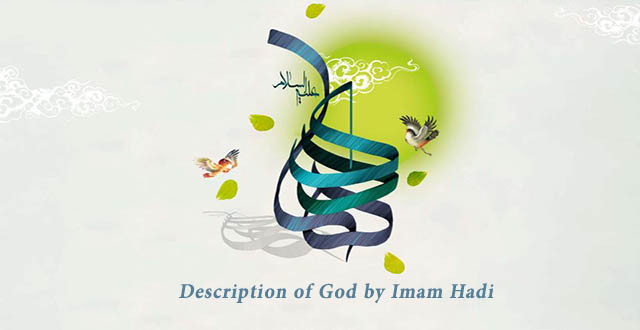
In verse 27 of Suratul Hadid, we read:
وَ رَهْبَانِيَّةً ابْتَدَعُوهَا مَا كَتَبْنَاهَا عَلَيْهِمْ إِلاَّ ابْـتِغَآءَ رِضْوَانِ اللٌّهِ فَمَا رَعَوْهَا حَقَّ رِعَايَـتِهَا
“And (as for) monkery, they innovated it– We did not prescribe it to them– only to seek Allah’s pleasure, but they did not observe it with its due observance.”
In view of the above verse, the question that arises is: What is Islam’s viewpoint about monasticism?
The term رَهباَنِيَّة (Monasticism) is derived from رهبة meaning fear and dread, which, in this case, means fear of Allah (s.w.t.). According to Raghib, in his book Mufradat, it is a fear, which is in combination with piety and perturbation. The word تَرَهُّب is in the meaning of تَعَبُّد, to worship; and رَهباَنِيَّة means intense devotion and worship.
Monasticism of a desired kind existed amongst the Christians although it had not been made compulsory in Christianity; however, the followers of ‘Isa (a.s.) distorted the concept by hauling it beyond its limits.
And it is for this reason that Islam has vehemently denounced it and the well-known tradition, which states:
لاَ رَهْبَانِيَّةَ فِي الإِسْلاَمِ.
“There is no (room for) monasticism in Islam”, is witnessed in numerous Islamic sources.1
One of the ugly innovations of the Christians with respect to monasticism had been ‘prohibition of marriage’ for the males and females who had abandoned the world. Others were ‘social seclusion’, disregarding the human responsibilities within a society, selecting secluded and far-flung monasteries and nunneries for living and worship in an environment, isolated from society. Later, great evils came into existence within the monasteries and the living centres of the monks, some of which – Allah (s.w.t.) Willing – we shall present later as a concluding portion of this discussion.
Certainly, the monks and nuns did extend positive services too like nursing individuals suffering from diseases that were dangerous and difficult to cure such as leprosy; propagation of religion in regions that were distant and amongst people that were wild and barbaric; initiating research programmes etc. Nevertheless, these acts in comparison to the entire system were trivial and insignificant, and on the whole, its evils were far greater than its benefits.
Fundamentally, man is an entity that has been created for a life within a society, and his material and spiritual development can only be achieved within a social life, and it is for this reason that none of the Divine religions have rejected this concept (of social life). On the contrary, they have endeavoured to strengthen its foundation.
Allah (s.w.t.) has placed ‘sexual desire’ within man to preserve lineage, and every thing that attempts to reject it totally is absolutely incorrect.
The Islamic abstemiousness (zuhd), which means leading a simple life, eliminating luxuries and not becoming a captive of wealth and rank, is in no way related to the issue of monasticism. This is so since monasticism means segregation and alienation from the society whereas abstemiousness means liberation for a more social living.
In a well-known tradition we read that one day the son of ‘Uthman ibne Maz’un died which so aggrieved him that he declared his house to be a mosque and (abandoning all other work) engaged himself in worship. When the Noble Prophet (S) came to know of this, he summoned him and said:
يَا عُثْمَانَ بْنَ مَظْعُونٍ إِنَّ اللٌّهَ لَمْ يَكْتُبْ عَلَيْنَا الرَّهْـبَانِيَّةَ إِنَّمَا رَهْـبَانِيَّةُ أُمَّتِي الْجِهَادُ فِي سَبِيلِ اللٌّهِ.
“O’ ‘Uthman! Surely, Allah, the Blessed and the Exalted has not ordained monasticism for us; monasticism of my ummah is only jihad in the way of Allah.”2
The above tradition is an allusion to the fact that if you desire to renounce the material life, do not do so negatively and by means of social seclusion; rather, seek it positively – in jihad in the way of Allah (s.w.t.).
The Noble Prophet (S) then went on to present a detailed explanation of the merits of congregational prayers – which itself emphasizes the rejection of monasticism and seclusion.
In another tradition we read that ‘Ali ibne Ja’far asks his brother Imam Musa ibne Kazim (a.s.): “Does it befit a Muslim to go on a journey or adopt asceticism, enclose himself in his house and not come out of it?” The Imam (a.s.) replied: “No.”3
Explanation
The journey that has been prohibited in this tradition is something which is akin to monasticism – a kind of itinerant monasticism; some people, without procuring for themselves a house, engaging themselves in work or seeking to earn a livelihood, converted themselves into globetrotters without provisions and supplies.
Constantly on the move from one place to another and fulfilling their needs by begging from the people, they looked upon this as a kind of renunciation of the world. But Islam has rejected the stationary as well as itinerant monasticism; yes, according to the teachings of Islam the important thing is that man should be abstemious while within the heart of society and not while secluded and segregated from it!
The Historical Origins of Monasticism
The history of Christianity reveals that monasticism, in its present form, had not existed in the first century of Christianity, but was rborn after the third century ad during the manifestation of the Roman emperor Disiyus and his intense drive against the followers of ‘Isa (a.s.), who, as a result of their defeat at the hands of this brutal emperor, sought refuge in the wilderness.4
The Islamic traditions too report this meaning, albeit more profoundly. It has been narrated that the Noble Prophet (S) said to Ibne Mas’ud: “Do you know from where did monasticism originate?”
Ibne Mas’ud replied: “Allah (s.w.t.) and His Messenger know better.”
He (S) said: After ‘Isa (a.s.), some tyrants came to the fore on the scene of leadership. The believers fought them three times and suffered defeat and so, they fled to the deserts and mountains, and, awaiting the arrival of the prophet, prophesized (Prophet Muhammad (S) by ‘Isa (a.s.)), engaged themselves in worship in the caves. Some of them remained on their religion while others followed the path of disbelief.
Then continuing, he (S) said: “Do you know what is the monasticism of my ummah?”
Ibne Mas’ud said: “Allah (s.w.t.) and His Messenger know better.”
He (S) said:
أَلْهِجْرَةُ وَ الْجِهاَدُ وَ الصَّلاةُ وَ الصَّومُ وَ الحَجُّ وَ الْعُمرَةُ.
“Emigration, Jihad, Salat, fasting, Hajj and ‘Umrah.”5
Will Durant, the renowned historian, in volume 13 of his well-known history presents a detailed discussion about monks, and is of the opinion that it was from the 4th century ad that nuns began to affiliate themselves with the monks; day by day monasticism was on the increase until it reached its zenith in the 10th century ad.6
Undoubtedly, this social occurrence, like other occurrences, in addition to possessing historical roots also possesses psychological ones; one of the facts which can be alluded to is that the psychological reaction of different individuals and nations against defeats and failures are totally different and varied.
Some develop an inclination to adopt seclusion and introversion, totally withdrawing themselves from society and social activities whereas there are some, who derive the lesson of endurance from failures, and come to possess greater firmness and resistance. The former group resorts to monasticism or something akin to it while the latter, in contrast, becomes more social.
Ethical and Moral Evils Resulting due to Monasticism
Swerving from the laws of creation always occasion negative repercussions and thus, it is not a matter of astonishment that when man distances himself from a social life, which is inherent and innate to him, he suffers from intense negative ramifications. And it is for this reason that monasticism, which is in contrast to the fundamentals of man’s natural disposition, gives birth to great evils, some of which are as follows:
Man, by nature, is civil and urban, and monasticism is in contradiction with this spirit of man and thus draws human societies into decadence and change of direction.
Not only does monasticism not lead to the purification of morals and perfection of soul, instead it leads to ethical deviation, lethargy, conceit, vanity, superiority complex and the like. And upon the supposition that man does manage to acquire an ethical excellence in a state of seclusion, it would not be regarded as an accomplishment, for excellence is when man is able to liberate himself from moral uncleanness while he is within a society.
Renunciation of marriage, which is one of the fundamentals of monasticism, not only does not bring about any virtue but on the contrary results in psychological disorders. The book, Encyclopedia of the 20th Century, states: Some of the monks considered paying attention to the female sex to be a Satanic act and harboured this concept to such an extent that they were unwilling to bring the female species of animals to their houses, lest its satanic soul cause harm and detriment to their spirituality!!
Despite this, history is witness to numerous atrocious acts from the monasteries, such that, according to Will Durant, Pope Innocent III described one of the monasteries as a brothel!7
Some of these monasteries had been transformed into centres of congregation for the world-loving, gluttonous and licentious ones to such an extent that the best of the wines could be found in them.
Of course, according to the testimony of history, ‘Isa (a.s.) never married, however this was definitely not because of his opposition to marriage – rather, his short life-span coupled with his perpetual journeys to different parts of the world for the propagation of religion did not permit him this liberty.
The discussion of monasticism befits separate books, devoted entirely to this topic, and if we were to dwell upon it in detail, we would deviate from our commentarial discussion.
We conclude this discussion by presenting a tradition from Imam ‘Ali (a.s.), who, while interpreting the verse:
قُلْ هَلْ نُنَبِّئُكُمْ بِالأََخْسَرِينَ أَعْمالاً الَّذِينَ ضَلَّ سَعْيُهُمْ فِي الْحَيَاةِ الدُّنْيَا وَ هُمْ يَحْسَبُونَ أَنَّهُمْ يُحْسِنُونَ صُنْعاً
“Say: Shall We inform you of the greatest losers in (their) deeds? (These are) they whose labour is lost in this world’s life and they think that they are well versed in skill of the work of hands.”8
said:
هُمُ الرُّهْبَانَ الَّذِينَ حَبِسُوا أََنْفُسَهُم فِي السَّوَارِي.
“One of the manifest examples of this are the monks, who had imprisoned themselves in the mountains and wilderness, and were under the impression that they were performing an excellent work.”9 and 10
—————————————————————-
1. This tradition has been reported in Majma’ul Bayan under رهب as also in al-Nihayah of Ibn Kathir.
2. Biharul Anwar, vol. 70, pg. 114 (Chapter al-Nahi ‘an al-Rahbaniyah), no. 1
3. Biharul Anwar, vol. 70, pg. 119, no. 10
4. Dairah al-Ma’arif Qarn Bistum, under رهب.
5. Majma’ul Bayan, vol. 9, pg. 243; Another tradition, similar to this but slightly abridged, has been mentioned in the commentary al-Durr al-Manthur, (vol. 6, pg. 177)
6. William Durant, vol. 13, pg. 443
7. William Durant, vol. 13, pg. 443
8. Suratul Kahf (18), Verse 103, 104
9. Kanzul ‘Ummal, vol. 2, no. 4496
10. Tafsir-e-Namuna, vol. 23, pg. 384a











